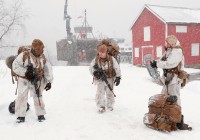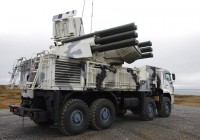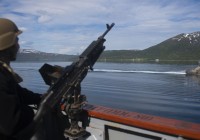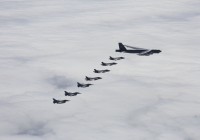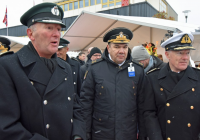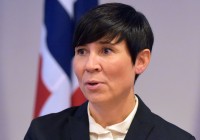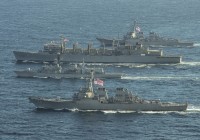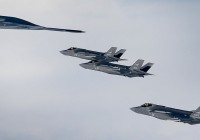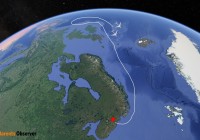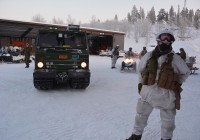
U.S. wants to keep the Arctic an area of low tensions, top official
ADVERTISEMENT
By Levon Sevunts
Speaking to reporters via teleconference call barely a week after his appointment, James DeHart, struck an unusually cooperative tone even as he portended that years from now the summer of 2020 will be seen as a pivotal moment in the U.S. Arctic policy.
“Our objectives for the region are that it be peaceful and an area of low tension, and that there be close cooperation among the nations of the Arctic,” DeHart said in his opening remarks.
DeHart’s tone was in sharp contrast to the more assertive and at times almost belligerent tone of his boss, Secretary of State Mike Pompeo, who stunned observers during an Arctic policy speech in Finland last year by tongue-lashing China and Russia and their policies in the Arctic.
‘An important pivot point’
DeHart, a career diplomat with extensive experience in global defence and security issues, has stepped into a position that was left vacant for nearly three years after retired U.S. Coast Guard Admiral Robert Papp left office in early 2017.
His appointment should be seen in the context of several recent diplomatic and defence moves by Washington to shore up its interests in the Arctic, DeHart said.
Over the last couple of months, the U.S. has launched a comprehensive and integrated diplomatic approach and engagement in the Arctic, he added.
ADVERTISEMENT
That includes the memorandum issued by the White House on June 9 that has set in motion the development of a fleet of Arctic icebreakers by 2029, DeHart said.
The State Department has opened a U.S. consulate in Nuuk, Greenland, DeHart said, adding that it is a significant development given the finite diplomatic resources at Washington’s disposal.
Pompeo visited Denmark less than two weeks ago, where the Arctic was an important part of discussions with Danish officials, he said. Pompeo also had a separate quadrilateral meeting that included ministers from Greenland and the Faroe Islands in addition to U.S. and Danish officials, DeHart said.
The U.S. Air Force also released its Arctic strategy in July, he added.
‘We’re seeing really pretty dramatic environmental changes’
This renewed interest in the Arctic is driven by two main factors, he said.
The second factor driving the renewed U.S. interest in the Arctic are the geopolitical changes taking place in the region, he said.
“Russia, an Arctic nation, which is increasing its activities and its security presence in the Arctic, and China, which is not an Arctic nation but has a clear interest and has shown its interest in investment and other commercial activities,” DeHart said.
Limits of Moscow’s partnership with Beijing
At the same time, DeHart offered a much more nuanced view of Russia-China cooperation in the Arctic.
Moscow and Beijing are cooperating more on a tactical level than on a strategic level in the Arctic, DeHart said.
“These are two countries that have some different interests there: Russia being an Arctic nation and I think protective of its status as an Arctic nation, and China seeking to play a bigger role,” DeHart said.
He also disputed an assertion by Chinese officials that China is a “near-Arctic” state, adding that “the closest part of China to the Arctic is about 900 miles away.”
“They are not part of the Arctic and I’m not sure that Russia necessarily wants to embrace a comprehensive Chinese role in the Arctic,” DeHart said.
“I see some differences I guess in their respective interests that could pose some constraints on their cooperation in the long term.”
In the meantime, the U.S. continues to closely watch Russia’s growing military presence in the Arctic, DeHart said.
‘Understanding the Canadian perspective’
DeHart, whose State Department résumé includes a stint as a senior adviser for security negotiations and agreements and two postings to Afghanistan, as well as a posting in Norway, said one of his first priorities would be to get to know better U.S. Arctic allies, including Canada.
He dodged a question about U.S.-Canada differences in the Arctic, when asked to comment on the maritime boundary dispute in the Beaufort Sea and other contentious issues between the two neighbours.
“We have such a broad and good relationship with Canada over so many different areas and the Arctic is one of those,” DeHart said. “One of my priorities here is to make sure that I’m fully understanding the Canadian perspective on the Arctic early in my tenure here.”
This story is posted on the Barents Observer as part of Eye on the Arctic, a collaborative partnership between public and private circumpolar media organizations.
ADVERTISEMENT
The Barents Observer Newsletter
After confirming you're a real person, you can write your email below and we include you to the subscription list.


